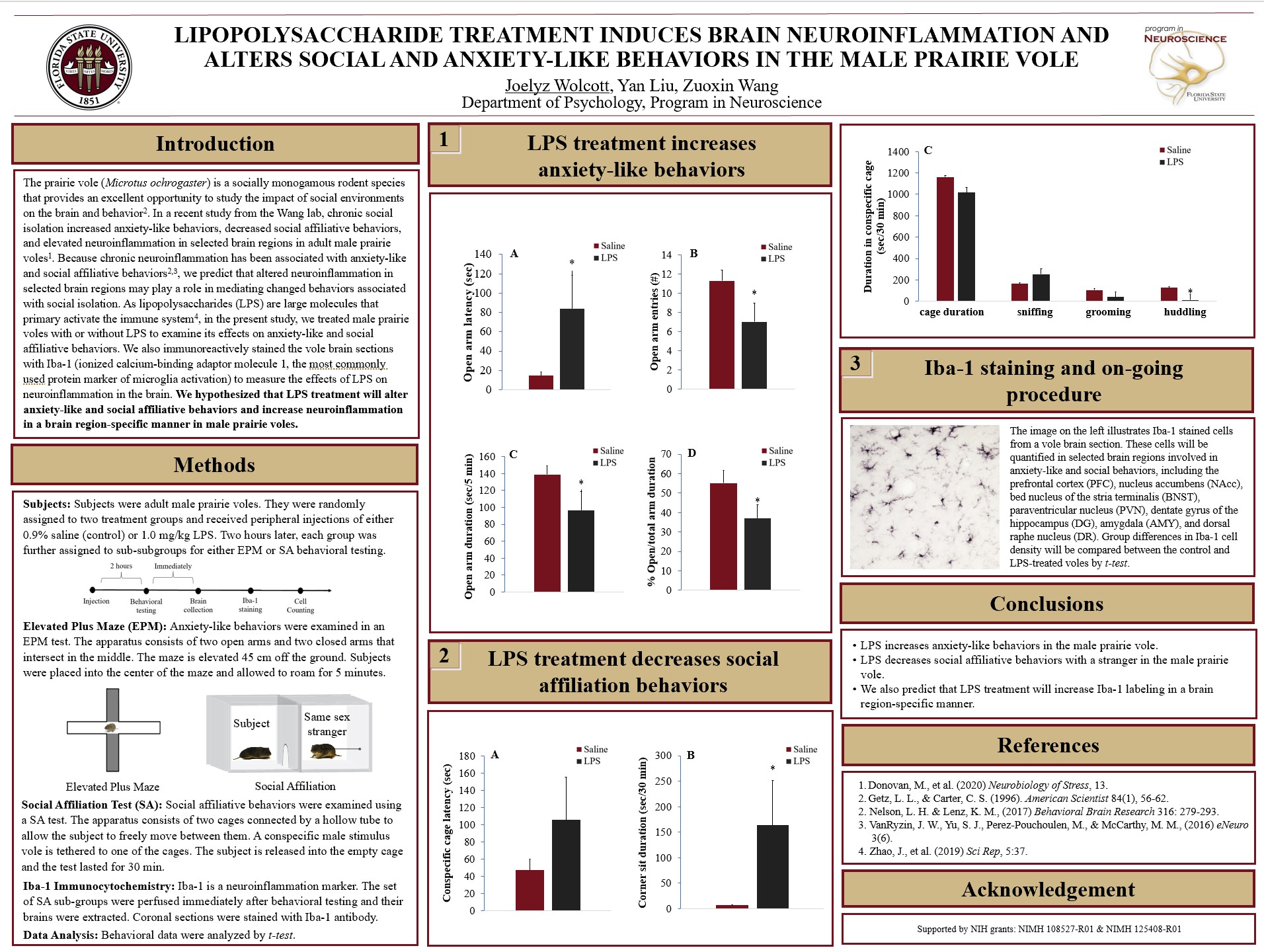Research Symposium
23rd annual Undergraduate Research Symposium, April 6, 2023
Joelyz Wolcott Poster Session 2: 1:30 pm - 2:30 pm/ Poster #189

BIO
Joelyz Wolcott is a third year behavioral neuroscience major completing her honors in the major project in the Wang lab. Her research examines the effects of lipopolysaccharide (LPS) treatment on brain neuroinflammation and social and anxiety-like behaviors in the prairie vole. In addition to her research, she is the vice president of Connecting Girls to STEM and events coordinator for the Neuroscience Undergraduate Student Association. After graduation, she plans to continue pursuing neuroscience research in a graduate school program.
Lipopolysaccharide treatment induces brain neuroinflammation and alters social and anxiety-like behaviors in the male prairie vole
Authors: Joelyz Wolcott, Zuoxin WangStudent Major: Behavioral Neuroscience
Mentor: Zuoxin Wang
Mentor's Department: Department of Psychology, Program in Neuroscience Mentor's College: Arts and Sciences Co-Presenters:
Abstract
The prairie vole (Microtus ochrogaster) is a socially monogamous rodent species that provides an excellent opportunity to study the impact of social environments on the brain and behavior. In a recent study from the Wang lab, chronic social isolation increased anxiety-like behaviors, decreased social affiliative behaviors, and elevated neuroinflammation in selected brain regions in adult male prairie voles. Because chronic neuroinflammation has been implicated in anxiety-like and social behaviors, we predict that neuroinflammatory changes in selected brain regions may play a role in mediating altered behaviors associated with social isolation. In the present study, we treated male prairie voles with or without lipopolysaccharide (LPS) to alter their immune system, and then measured their anxiety-like behaviors using the elevated plus maze (EPM) and affiliative behaviors using the social affiliation (SA) tests. Our behavioral data show that, compared to the control voles, LPS-treated voles spent less time in the open arms of the EPM, more time sitting in the corner and less time displaying social interaction with the conspecific during the SA test. These data suggest that LPS treatment increased anxiety-like behaviors and impaired social affiliation. We also immunoreactively stained the vole brain sections with Iba-1, a protein marker of microglia activation, to measure the effects of LPS on neuroinflammation in selected brain regions. We predict that LPS treatment induces neuroinflammation in certain brain regions, which, in turn, can alter the anxiety-like and social affiliative behaviors. (Support by NIMH108527-R01 and NIMH-125408-R01)
Keywords: neuroinflammation, prairie vole, anxiety-like behavior, social behavior, neuroscience

